Detailed introduction of the University of Bordeaux:
Introduction
The University of Bordeaux is a multidisciplinary public university located in Bordeaux, the wine country of France. It has a profound historical heritage and its history can be traced back to 1441. It was formed in 2014 by the merger of three universities in the Bordeaux region.
Overview
Student size: Nearly 52,000 students.
Faculty: 6,100 faculty and staff, including nearly 3,260 lecturers, researchers and other researchers.
History
The history of the University of Bordeaux can be traced back to 1441, when it was established by order of Pope Eugene IV. In 1793, the French National Convention announced the abolition of all university institutions including the University of Bordeaux. The original university continued to operate as a college until it was rebuilt on July 18, 1896. Influenced by the "May Storm" in 1968, the University of Bordeaux was split into the University of Bordeaux I, the University of Bordeaux II and the University of Bordeaux III in 1970. In 1995, some colleges were separated from the University of Bordeaux I to form the University of Bordeaux IV. In 2014, three of the four universities in Bordeaux (University of Bordeaux I, University of Bordeaux II and University of Bordeaux IV) were re-merged into the new University of Bordeaux, while the University of Bordeaux III remained independent.
School Strength
Teaching Quality: The University of Bordeaux is one of the French public universities certified by the Ministry of Education of China. Its teaching quality is recognized both in France and internationally. The school offers a wide variety of professional courses and training programs covering various disciplines, providing students with a wide range of learning options.
Scientific Research Level: The school has a total of 90 research institutions, including laboratories, institutes and technology platforms, distributed in nearly 50 research fields. The University of Bordeaux has invested heavily in research. Between 2015 and 2020, it had 27,000 scientific publications, 18% of which were among the top 10% most cited in the world, and participated in 130 European joint research projects. It has strong scientific research capabilities.
Institutional nature
Public university.
Educational philosophy
The University of Bordeaux is committed to combining research and education to cultivate future citizens with innovative spirit and practical ability to help them succeed in their personal and professional lives. The school focuses on interdisciplinary research and the dissemination and innovation of knowledge, emphasizes social and environmental responsibility, actively participates in social transformation and sustainable development, and continuously enriches employees' skills through lifelong learning opportunities to promote the development of enterprises and communities.
Key laboratories and disciplines
Key laboratories: The University of Bordeaux 1 has a total of 47 laboratories, most of which are carried out in close cooperation with the French National Center for Scientific Research (CNRS). These laboratories are distributed in the fields of mathematics and computer informatics, physics, chemistry, biology, and earth and ocean sciences.
Key disciplines:
Mathematics: Mathematics has a high reputation in France and even internationally. Its teaching and scientific research cover algebra, geometry, number theory, mathematical analysis, probability theory and other fields, providing students with a solid mathematical theoretical foundation and application ability training.
Physics: In physics, the school's research involves theoretical physics, condensed matter physics, optics, nuclear physics and other directions. It has advanced experimental equipment and research teams, providing students with opportunities to explore the physical world in depth.
Chemistry: Chemistry focuses on combining theory with practice, covering organic chemistry, inorganic chemistry, physical chemistry, analytical chemistry and other fields, cultivating students' professional skills and innovative ability in the field of chemistry, and has also achieved remarkable results in interdisciplinary fields such as materials chemistry and biochemistry.
Biology: Biology is one of the advantageous disciplines of the University of Bordeaux, including molecular biology, cell biology, ecology, genetics and other research directions. Students can be exposed to cutting-edge biological research results and experimental techniques, laying a solid foundation for future work or research in biology-related fields.
Law: As an advantageous discipline of the University of Bordeaux IV, the law major has an important position in France. Its courses cover civil law, criminal law, commercial law, international law and other legal fields, and have cultivated many outstanding legal professionals. They have in-depth research and rich teaching experience in legal theory and practice.
Medicine: The teaching and research of the School of Health Sciences in the field of medicine covers basic medicine, clinical medicine, public health, medical imaging and other majors. It is committed to cultivating professionals with solid medical knowledge and clinical skills, and has made important contributions to the medical and health cause in France and even the world.
Faculties
The University of Bordeaux organizes its training structure into 4 faculties, which group together training units, departments and institutes, and to which 3 specific structures are added, namely the University Institute of Technology (IUT), the Institute of Vine and Wine Sciences (ISVV) and the Institute of Education (INSPE):
Faculty of Law, Political Sciences, Economics and Management: pursues an innovative and ambitious training policy, coordinating initial and continuing education in the fields of law, political science, economics, management, economic and social administration, and students benefit from cutting-edge teaching based on research.
Faculty of Health Sciences: its mission is to teach and conduct research in the field of health in the broadest sense, including basic medicine, science applied to medicines and health products, medical biology, life sciences, public health, environmental sciences, medical sciences and dentistry.
Faculty of Human Sciences: offers about 60 initial and professional training courses, mainly in the fields of human and social sciences, applicable to education, health, work, business, urban, social and migration issues, as well as sports activities and practices, social work, etc.
Faculty of Science and Technology: brings together nearly 9,500 students, who study in the main fields of mathematics, computer science, physics, engineering science, chemistry, biology, earth science and environmental science. The college attaches great importance to linking its courses with important research in the departments and research laboratories of the University of Bordeaux.
Ranking
The University of Bordeaux is always listed in the top 500 of the world's best universities in the international authoritative university rankings, and ranks among the top ten French higher education institutions. In the 2022 Soft Science World Class Subject Rankings, 9 disciplines of the University of Bordeaux entered the world's top 150, of which 5 disciplines entered the top 100.
Expenses
The University of Bordeaux is a public university in France. The tuition fees are uniformly set by the French government and are relatively low, but the tuition fees for different majors and academic systems will vary. Generally speaking, the annual tuition fees for undergraduates are about 200-400 euros, and the annual tuition fees for masters are about 400-600 euros. However, the tuition fees for some special majors such as medicine, law, and economics are higher than other majors. For example, the tuition fee for law is about 9,000 euros per year for undergraduates, while the tuition fee for postgraduates is as high as about 13,000 euros per year.
Campus
Campus distribution: The University of Bordeaux has a total of 18 campuses distributed in the New Aquitaine region, with a total campus area of 187 hectares, including 140 hectares of green space.
Teaching facilities: The school has several teaching and training service support centers, such as the "alpha space" for experiments on the use of new information and communication technologies, the "omega space" dedicated to foreign language learning, the employment information guidance center, and the graduate future observation station, etc., providing students with good learning and living conditions.
-
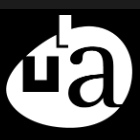
University of Angers
-
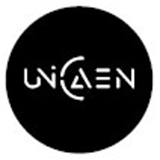
University of Caen Normandy
-

University of Bordeaux
-

Claude Bernard University Lyon 1
-
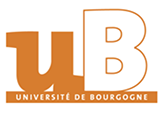
University of Burgundy
-

CY Cergy Paris University
-
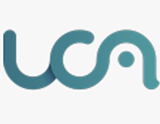
Clermont Auvergne University
-

University of Artois
-
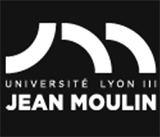
Jean Moulin University Lyon 3
-

University of Franche-Comté
-

Mesoamerican University
-

Istmo University
-

Mariano Galvez University of Guatemala
-

Regional University of Guatemala
-

Galileo University
-

Francisco Marroquín University
-

Rafael Landívar University
-

University of the Valley of Guatemala
-

University of San Carlos of Guatemala
-

Technological Institute of Tlaxcala Plateau
-

Golfo University
-

Technological University of South Sonora
-

Technological University of Huejotzingo
-

Tizimín Institute of Technology
-

Chilpancingo Institute of Technology
